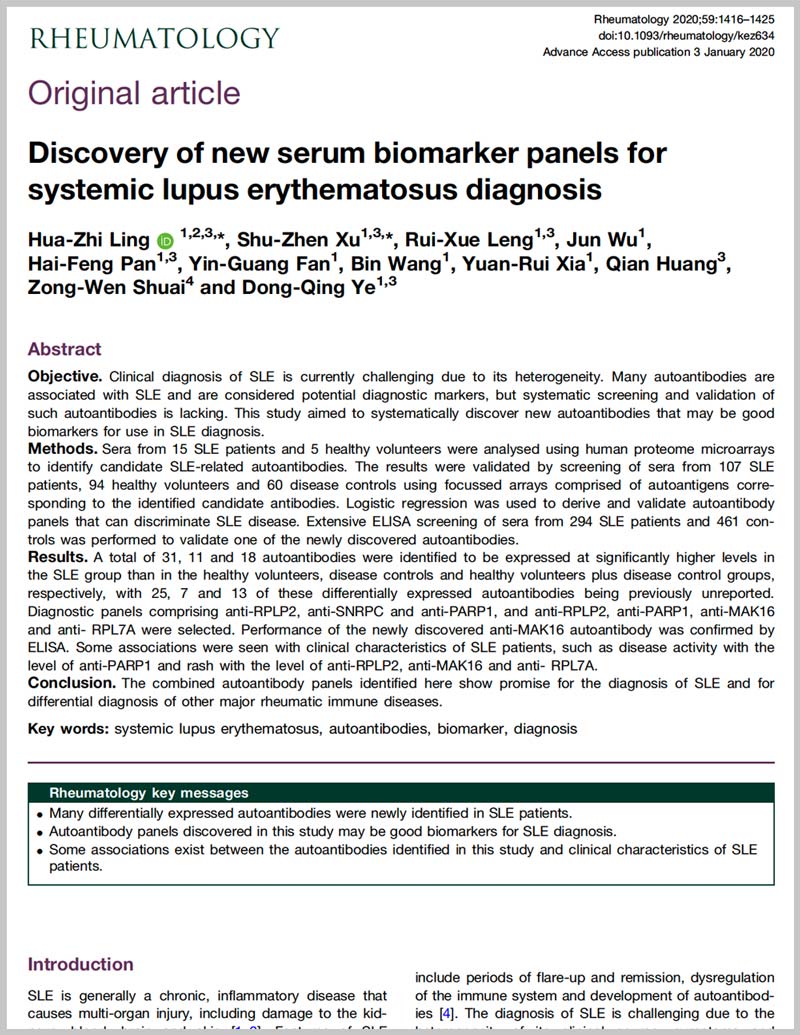- Follow Us
CDI Labs Services for
Diagnostic Development
Discover specific autoantibodies that are often a key diagnostic criterion for diseases.
REQUEST INFOHuProt for the Diagnosis of Autoimmune Diseases
The presence of autoantibodies is often a key diagnostic criterion for autoimmune diseases
Autoantibodies are frequently detected in the serum or plasma of patients with a wide range of diseases, including autoimmune diseases such as rheumatoid arthritis, systemic lupus erythematosus (SLE), autoimmune thyroid diseases (e.g., Hashimoto's thyroiditis, Graves' disease), type 1 diabetes, and autoimmune liver diseases (e.g., autoimmune hepatitis, primary biliary cholangitis). The presence of specific autoantibodies is often a key diagnostic criterion for these diseases. Autoantibody panels consisting of several specific autoantibodies have the potential to be used for the diagnosis and classification of autoimmune diseases where diagnosis is challenging due to the heterogeneity of the clinical course, symptoms and severity of the disease. In addition to HuProt, we also offers lower density custom microarrays and individual proteins that can be used for validation assays or to support the transition of low-plex signatures to other platforms.
In the featured publication below, HuProt™ microarray was used to profile autoantibodies in patients with systemic lupus erythematosus (SLE). Further analysis with a larger patient cohort using SLE-focused microarrays identified 31 autoantibodies with potential as biomarkers for diagnosis and 11 for differential diagnosis of SLE.
Discovery of new serum biomarker panels for systemic lupus erythematosus diagnosis
Objective
Clinical diagnosis of SLE is currently challenging due to its heterogeneity. Many autoantibodies are associated with SLE and are considered potential diagnostic markers, but systematic screening and validation of such autoantibodies is lacking. This study aimed to systematically discover new autoantibodies that may be good biomarkers for use in SLE diagnosis.
VIEW PAPERCDI Labs Advantages
HuProt Sample Requirements
Human serum or plasma
One 20 μL per sample
Antibody isolates
10 μg per sample (concentration 0.1 mg/mL)
Human cerebrospinal fluid (CSF)
Minimum 1.5 mL per sample
Protein / peptide / small molecule
10 μg per sample (concentration 0.1 mg/mL)
RNA
1 mL per sample (concentration 2 μM)

